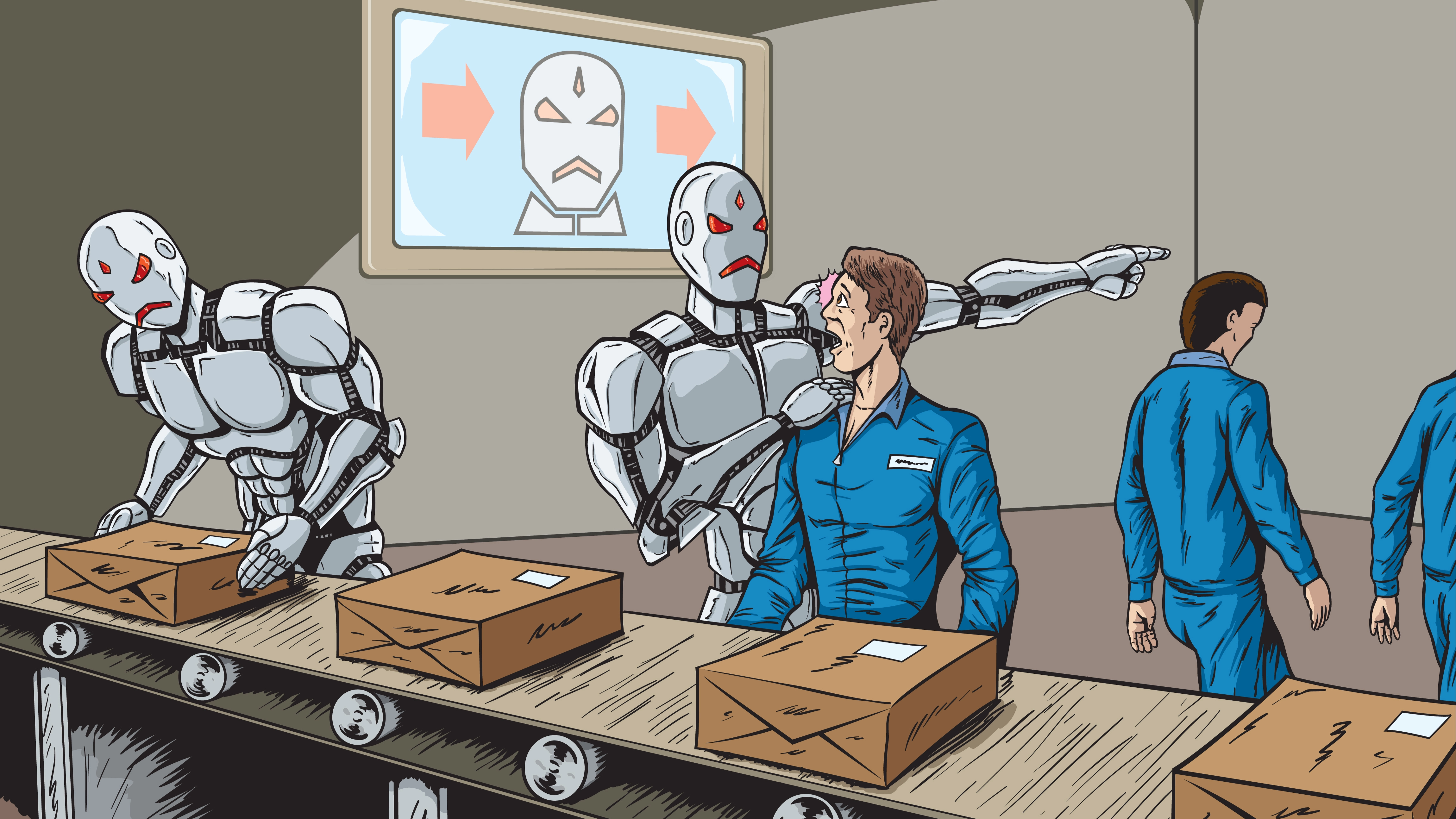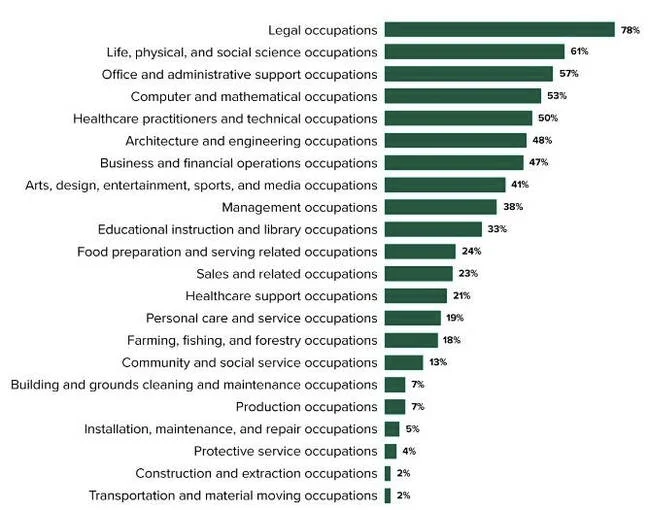Artificial intelligence will replace 2.4 million US jobs by 2030 - study

By 2030, generative artificial intelligence will replace 2.4 million jobs in the U.S. and impact another 11 million. Meanwhile, other forms of automation will make some occupations more expensive.
Here's What We Know
White-collar jobs - technical writers, social research assistants, proofreaders, copywriters and administrative workers - are most at risk of job losses, according to a forecast by analyst firm Forrester.
Middle-class, college-educated workers with higher education will experience the biggest shocks. For example, people with annual salaries of less than $60,000 will be less affected by generative AI than those earning $90,000 or more.

How much impact can technology have on different types of jobs.
According to Forrester analysts, these workers have several years to prepare. Developers of AI models will still need to address issues related to copyright, plagiarism, frequency of algorithm updates, bias, ethics and reliability of responses.
The report also states that other forms of automation will have a greater impact. In 2023, generative AI will be responsible for 9.3 per cent of job losses due to automation, and by 2030 this figure will rise to 30.4 per cent.
The report argues that not all jobs replaced by automation are a loss to people. In some cases, technology will replace labour that has been hard to fill. For example, physical robotics and automation are just beginning to fill the labour shortages that have emerged in the 2020s.
Forrester analysts believe that members of more creative professions, such as editors and writers, are more likely to use generative AI in their work and less likely to be replaced.
The report's authors urged firm leaders to understand how to use to improve productivity and customer service.
Despite the technology's potential, it can lead to a loss of productivity. Analysts emphasised that tools like ChatGPT can generate "coherent nonsense". This will potentially lead to inconsistent customer service or workers having to troubleshoot problems on their own.
There could also be a shortage of rare talent in the labour market: developers, business analysts, operations engineers, and ethical professionals.
Source: The Register